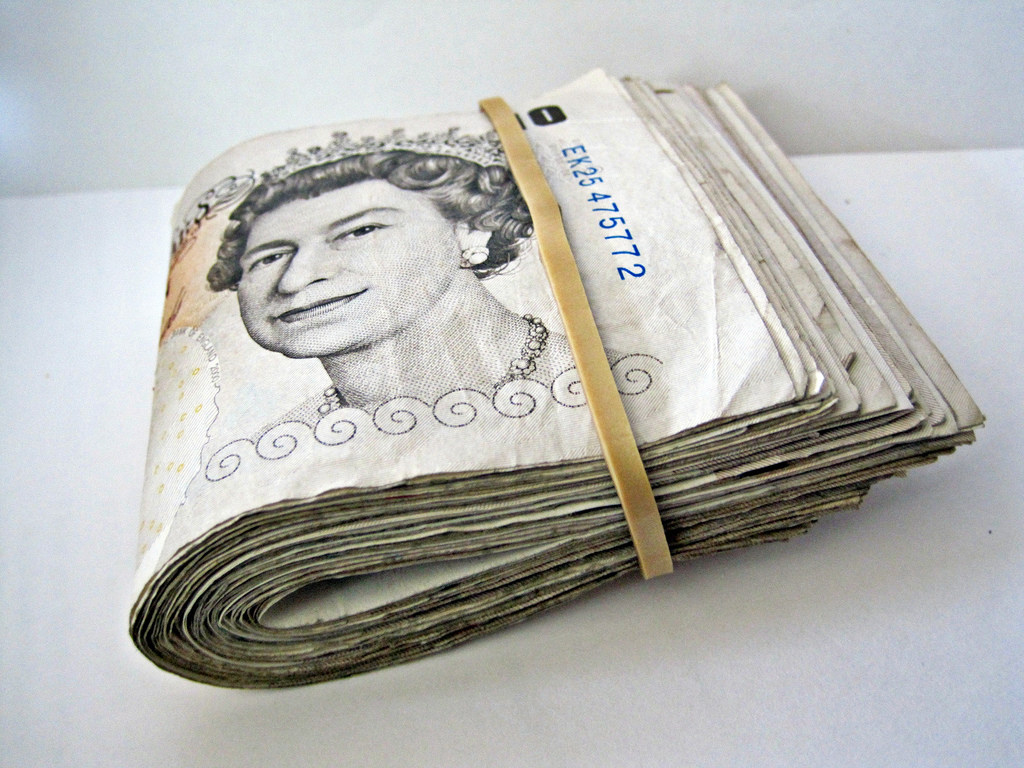The Bloomberg British Pound Index, calculated by Bloomberg, tracks change in rate of the pound sterling against the euro, US dollar, Australian and Canadian dollars, Japanese yen, Swiss franc, Norwegian krone and Renminbi. The index has fallen to the level of 666.84 points. According to Bloomberg, the value reached today was the lowest in the entire history of the index, calculation of which began in 2004. From the beginning, it dropped by 17% in total.
Sharp depreciation of the pound came after Prime Minister Theresa May announced imminent start of the specific measures to leave the EU, that is, started activation of Article 50 of the Lisbon Treaty. "We will operationalize them until the end of March next year" - she said on October 2, 2016.
According to May, the authorities cannot afford to draw the process out to a great length. "Having voted to leave, the society expects to see a point which will mean a formal exit of Britain from the EU", - said Prime Minister.
In the course of trading on October 3, the pound fell to a three-year low to the euro, and reached on a minimum level of € 1.1433. The last time it was priced cheaper on August 1, 2013, when the currency was priced at € 1,143.
Today, the pound was down against the dollar to $ 1.2846, which was only 0.5 higher than the minimum of more than 30 years, the level to which the pound fell in early July after the victory of Brexit supporters.
The pound fell to Swiss franc by 0.92%, by 1.03% against the yen and the Australian dollar, by 1.2% to the Canadian dollar, and by 1.35% to the Norwegian krone.
In July 2016, Bloomberg experts acknowledged the pound worst currency of the world, noting its strong decline against the dollar.
Meanwhile, Julius Baer believes that the majority of UK economic surprises has been caused by weakening of the pound sterling rather than stability of the national economy.
‘In the past few weeks, market participants are rubbing their eyes in amazement while watching the unexpectedly positive economic indicators for the United Kingdom. This has led to a view that the vote on Brexit has had no effect so far, or they have been minimal. However, we are of the opinion that it would be foolish to ignore long-term consequences of Brexit for the economy. Most of the UK economic surprises have been caused by weakening of the pound sterling rather than stability of the national economy. For example, it’s growth in retail sales due to rising purchases of tourists, growth in housing prices caused by the attempts of foreign real estate speculators to benefit from the difference in rates, and growth of new orders due to weakening of the British currency.
It is obvious that the negative economic consequences of the referendum were successfully delayed in time due to position of Prime Minister Theresa May, who believes that "it is better to do something late, but as it should be done." This approach has given the UK economy the necessary breathing space and even allowed to benefit from weakening of the pound sterling.’
source: bloomberg.com
Sharp depreciation of the pound came after Prime Minister Theresa May announced imminent start of the specific measures to leave the EU, that is, started activation of Article 50 of the Lisbon Treaty. "We will operationalize them until the end of March next year" - she said on October 2, 2016.
According to May, the authorities cannot afford to draw the process out to a great length. "Having voted to leave, the society expects to see a point which will mean a formal exit of Britain from the EU", - said Prime Minister.
In the course of trading on October 3, the pound fell to a three-year low to the euro, and reached on a minimum level of € 1.1433. The last time it was priced cheaper on August 1, 2013, when the currency was priced at € 1,143.
Today, the pound was down against the dollar to $ 1.2846, which was only 0.5 higher than the minimum of more than 30 years, the level to which the pound fell in early July after the victory of Brexit supporters.
The pound fell to Swiss franc by 0.92%, by 1.03% against the yen and the Australian dollar, by 1.2% to the Canadian dollar, and by 1.35% to the Norwegian krone.
In July 2016, Bloomberg experts acknowledged the pound worst currency of the world, noting its strong decline against the dollar.
Meanwhile, Julius Baer believes that the majority of UK economic surprises has been caused by weakening of the pound sterling rather than stability of the national economy.
‘In the past few weeks, market participants are rubbing their eyes in amazement while watching the unexpectedly positive economic indicators for the United Kingdom. This has led to a view that the vote on Brexit has had no effect so far, or they have been minimal. However, we are of the opinion that it would be foolish to ignore long-term consequences of Brexit for the economy. Most of the UK economic surprises have been caused by weakening of the pound sterling rather than stability of the national economy. For example, it’s growth in retail sales due to rising purchases of tourists, growth in housing prices caused by the attempts of foreign real estate speculators to benefit from the difference in rates, and growth of new orders due to weakening of the British currency.
It is obvious that the negative economic consequences of the referendum were successfully delayed in time due to position of Prime Minister Theresa May, who believes that "it is better to do something late, but as it should be done." This approach has given the UK economy the necessary breathing space and even allowed to benefit from weakening of the pound sterling.’
source: bloomberg.com





